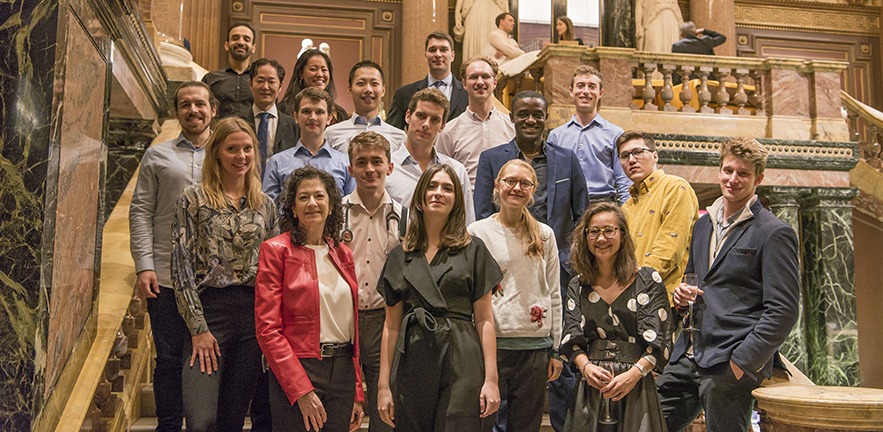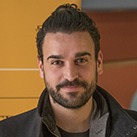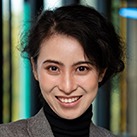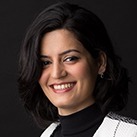What have alumni gone on to do?
Prospective applicants often ask about the paths our alumni have taken after completing EnterpriseTECH STAR. Many use the programme as a natural next step after EnterpriseTECH, leveraging their experience with us to develop the early stages of their own business ideas. Some on the other hand have stayed in academia, joined other start-ups, or have taken up roles with tech consultancy or VC firms.

The programme in numbers
Since its inception in 2019, we have run 4 cohorts of EnterpriseTECH STAR. To date, 70 students have graduated, 42 new ventures have emerged and as many as 20 appear to be here to stay.
Investment and grant income raised by our ventures, as of October 2024.
Jobs have been created by our ventures, as of October 2024.
Alumni and venture highlights (as of October 2024)
Alumni consistently report how the programme helped them crystallise their business ideas, refine their strategies, and grow as entrepreneurs. Their experiences speak to the long-term value of the programme in their personal and professional development.
Cohort I
20 students
Sep-Nov 2019
- Dr Yudi Ding. CEO and Co-Founder of PACT Earth Ltd. Elegant biomaterials made in harmony with planet earth. PACT manufactures eco-friendly, leather-like biomaterials using collagen and natural ingredients, reducing the environmental impact of traditional raw materials in industries such as fashion, footwear, and automobiles.
- Dr Ben Woodington. CEO and Co-Founder of Opto BioSystems Ltd. Developing miniaturised implants aimed at treating serious medical conditions, particularly neurological disorders.
- Dr Hendrik Runge. CEO and Co-Founder of Cambridge Nucleomics Ltd. Digitizing RNA: RNA measurement made fast and easy at scale with single-molecule accuracy.
- Dr Filip Cvetko MBA. CSO and Co-Founder of The Nu. Leveraging the latest in longevity research and AI-powered technology to provide you with a personal blueprint for healthy ageing tailored to your unique biology.
Cohort II
20 students
Apr-June 2021
- Dr Liz Li. COO and Co-Founder of Mimicrete Ltd. Developing novel self-healing concrete technology that repairs cracks upon formation, reducing the need for repairs, overengineering, and cutting carbon emissions. Innovate UK Women in Innovation Award 2022.
- Dr Ryan Greenhalgh. CTO and Co-Founder of DeepMirror AI Ltd. Simplifying AI-powered drug design, making it as easy as browsing the web to empower biopharma teams.
Cohort III
14 students
Mar-May 2022
- Dr Natalija Stepurko. CTO and Co-Founder of BravelyCultured Ltd. Marine microbial biobank for biotechnological applications, supplying novel microorganisms to the companies in agriculture, cosmetics and chemical space.
- Dr Franck Courbon. CEO and Founder of Ethicronics Ltd. Hardware-enabled cybersecurity to combat counterfeit and compromised electronics for sectors like defence and finance. Winner of Cambridge Business Weekly Graduate Business of the Year 2024.
- Dr Tim Chisholm. Founder of Neurothread Diagnostics Ltd. Focuses on developing a diagnostic platform for neurodegenerative diseases to improve diagnostic accuracy and patient outcomes. Accelerate@Babraham 2023 cohort.
- Dr Xinru Li. Founder of Granta Advanced Magnetics and Electronics Ltd. Dedicated to developing innovative magnetic solutions for next-generation power systems across a variety of industries including automotive, electronics, renewable energy, and aerospace.
Cohort IV
16 students
April-June 2024
- Dr Luke Cullen. Founder of Just Decarbonise. Automating the estimation of supply chain emissions, reducing tracking costs and allowing more resources for decarbonisation strategies.
- Ping Yin Leap. Founder of SynPixels. AI to generate synthetic CT scans for better radiotherapy planning, reducing side effects and increasing access.
- Dr Arko Paul. Founder of Oltera Ltd. Reprogramming immune cells to treat glioblastoma.
- Dr Noora Almarri. Founder of BioHarv Ltd. Batteryless implants for early heart failure detection, powered by heartbeat movement.
- Dr Sebastian Larsen. Founder of Nexus Additive Ltd. An AI platform for metal additive manufacturing that improves quality assurance and reduces inspection costs.
- Dr Omid Saghafifar. CEO and Co-Founder of Remedium Energy Ltd. Developing thermodynamic and economic models including but not limited to carbon capture battery and calcium looping technology.
- Dr Rita Giordano. CEO and Founder of Clarum Ltd.
Alumni journeys

From digital security expert to founder of a secure and sustainable electronics startup
Name: Dr Franck Courbon
Education: Computer Sciences Postdoctoral Research Associate
New role: CEO and Founder, Ethicronics
STAR cohort: Cohort III 2022
My journey into entrepreneurship began after spending 3.5 years at Thales-DIS, a world leader in digital security in France, and 7 years at the prestigious University of Cambridge. As I delved into the world of digital security and research, I discovered a gap in the market for a more secure and sustainable electronics hardware. Inspired by this revelation, I founded Ethicronics in June 2022, and have been dedicated to it full-time since November 2022.
Ethicronics aims to revolutionise the electronics industry with our innovative B2B turn-key solution that guarantees no more fake, compromised, or unsustainable hardware. Our technology has vast potential across various sectors, including aerospace, finance, and internet of things (IoT). The EnterpriseTECH STAR programme played a crucial role in affirming the need for Ethicronics and propelled me towards this exhilarating and challenging career path.
The core technology behind Ethicronics stems from a Leverhulme Trust & Isaac Newton Fellowship and a University of Cambridge EPSRC IAA Partnership Award on Physical Attacks and Supply-chain Security (PASS). As a proud NCSC for Startups alumnus, Ethicronics has also received support from InnovateUK through a grant and Edge support and is currently part of the Cambridge Judge Business School Accelerate programme.
From our base at the Allia Future Business Centre in the heart of Silicon Fen, Cambridge, Ethicronics is committed to delivering better, more secure electronics at scale for a brighter and safer future.

From protein chemistry researcher to founder of an eco-conscious biomaterial startup in the fashion industry
Name: Dr Yudi Ding
Education: Chemistry PhD student, University of Cambridge.
New role: CEO and Co-Founder, Hide Biotech Ltd.
STAR cohort: Cohort I 2019
In 2019, I founded Hide Biotech as part of my journey with EnterpriseTECH STAR and Entrepreneur First. In fact, the spark for the idea originally came out of the project my team was working on during EnterpriseTECH. Before that, I worked for Johnson & Johnson in manufacturing management and the advanced research unit at L’Oréal for anti-ageing molecules. My PhD from Cambridge University, where I studied and researched protein chemistry, proved to be a key foundation for Hide Biotech’s protein-based biomaterial.
Since its inception, Hide Biotech has grown from a student project to a fast-growing startup that has raised over £6 million in funding from top-tier VCs. Despite raising funds during a market downturn, we managed to secure competitive deals from multiple investors at a premium. Today, we have 10 full-time employees, attracting talent from across the globe, and we are set to double our workforce in 2023. Our business occupies labs in Bio-Innovation Centre and industrial spaces in Cambridge Science Park.
Our mission at Hide Biotech is to reduce the environmental impact of raw materials used in fashion. Leather, in particular, has one of the highest environmental impacts, including water pollution with heavy metals, significant land use, and carbon footprint due to its derivation from the cattle industry. By turning waste derived collagen into a biomaterial that mimics leather, we create a scalable, climate-responsible, and beautiful bio-based substitute for leather. The materials have been tested in various tanneries and fashion houses across Europe and the US with promising performance and aesthetic results. In fact, a couple of the largest global fashion groups have made collaboration proposals to Hide to bring new materials to the market.

From interdisciplinary scientist to co-founder of a life sciences-focused machine learning startup
Name: Dr Ryan Greenhalgh
Education: Engineering PhD student, University of Cambridge
New role: CTO and Co-Founder, DeepMirror
STAR cohort: Cohort II 2021
I’ve been drawn to the interface between life sciences, engineering, and entrepreneurship since my undergraduate studies. I studied Material Science and Engineering at Cambridge, published four papers in tissue regeneration and briefly worked at a medical device company during my time as an undergraduate. My passion for life and physical sciences continued at, where I completed a PhD in Biology and Physics.
It was during this time that my interest in entrepreneurship brought me to EnterpriseTECH and CJBS, serving as a platform to work with early-stage companies in the Cambridge and London start-up ecosystem. I built machine learning proof of concepts for three companies since 2019, one of which raised $1 million.
In 2021, I co-founded DeepMirror, where we are building the learning infrastructure to power discoveries in the Life Sciences industry. In the last 2 years, we raised pre-seed funding and won a prestigious Innovate UK smart grant among others.
The EnterpriseTECH programmes and the Cambridge Judge Entrepreneurship Centre have been instrumental in exposing me to a strong network of people who have facilitated the growth of DeepMirror. In particular, Prashant Shah (o2h group), a mentor on EnterpriseTECH STAR; he has been a key investor, advisor, and more recently a board member at DeepMirror.

From civil engineering researcher to award-winning construction materials entrepreneur
Name: Dr (Liz) Ziling Li
Education: Engineering PhD student, University of Cambridge
New role: COO and Co-Founder, Mimicrete
STAR cohort: Cohort II 2021
I’ve been busy as a new entrepreneur and co-founder of Mimicrete Ltd, where I serve as the Chief Operating Officer. With a PhD in civil and environmental engineering from the University of Cambridge, my research has focused on biomimetic construction materials, self-healing materials, and 3D printing. In fact, my research in vascular self-healing concrete has been transformed into the core technology of Mimicrete Ltd.
I’ve been dedicated to commercialising my research-based idea for over three years and towards that goal, I attended accelerators and entrepreneurship programmes at Cambridge Judge Entrepreneurship Centre including EnterpriseTECH and EnterpriseTECH STAR during my PhD. After graduation, I co-founded and registered Mimicrete Ltd, which has gained recognition across various platforms including the CJBS Blog, Business Weekly Newspaper, BBC Cambridgeshire Radio, Tech Round and more.
Under my leadership, Mimicrete closed a pre-seed round in 2022 and has achieved significant recognition, including awards such as the PHBS-CJBS Global Pitch Competition (2021), She Loves Tech Impact Award (2022), and most recently, the Innovate UK Women in Innovation Award (2023). I’m currently managing and leading projects working on product validation and commercial trials with industrial partners, including the IUK Smart Grant Project, IUK Wil Project, and Phase 1 of the IUK GCRE Project.

From passionate health-focused academic to founder of a sustainable agriculture and nutrition startup
Name: Beenish Luqman.
Education: Cancer genomics Masters students, Barts London.
New role: Founder and CEO, DiRibona
STAR cohort: Cohort III 2022
My north star has always been to make a significant contribution to human health. This resolve was strengthened during my degree in Cancer and Genetics. I wanted to understand the impact of the environment and nutrition on human health and explore links to cancer. It was apparent that the rapid depletion of global resources, in particular the quality of arable land, was pushing us to a tipping point. Not only were we running out of sustainable choices to grow crops, but the crops that we were artificially enhancing, also had a negative effect on soil’s ability to naturally recuperate. However, I felt I had more questions that I could find answers for, and if I was to take practical steps to address these challenges, I needed a strong platform.
Getting accepted on the EnterpriseTECH programme, at the Cambridge Judge Entrepreneurship centre, is when my ideas really started taking shape. I learnt how to ideate and iterate in a structured and organised manner, for positive outcomes. I was transitioning from being an academic to a business founder and the EnterpriseTECH programme made the transition seamless.
It wasn’t until I was accepted into the EnterpriseTECH STAR programme when my idea began to crystallise. I went from an initial hypothesis to a working model of a business in three months. The programme equipped me with the right knowledge, tools, and frameworks to refine my business idea, and the programme mentors offered deep expertise in all areas of business development to help me gain crucial skills.
After graduating from the STAR programme in 2022 I joined the Accelerate Cambridge programme, at the CJBS Entrepreneurship centre where I continue to focus on business and commercial validation of DiRibona.
DiRibona was registered in 2022 and we are working on plans for seed funding. We are seeing strong interest in DiRibona’s potential and are actively working on scientific validation.

From aspiring academic researcher to impactful food biotech entrepreneur
Name: Natalija Stepurko
Education: Biochemistry PhD student, University of Cambridge
New role: Co-Founder, BravelyCultured
STAR cohort: Cohort III 2022
I arrived in Cambridge four and a half years ago with the aspiration of becoming an academic researcher. While doing a PhD focused on the structural and mechanistic aspects of protein behaviour, I acutely felt the lack of impact my research was making. I wanted to see a noticeable change in the world instigated directly by my work.
Currently, I am a co-founder of a food biotech company called BravelyCultured, which aims to drive the switch towards sustainable food production.
It’s hard for me to imagine that just a year and a half ago, I joined EnterpriseTECH at Cambridge Judge Entrepreneurship Centre, knowing practically nothing about the business world! After completing the programme, I enrolled in an intensive two-month-long full-stack web developer bootcamp, during which I came up with my own business idea (completely unrelated to BravelyCultured!) and was offered a place on EnterpriseTECH STAR to develop it further.
As a student on STAR, I began to feel (again) that the business idea I was developing wasn’t going to drive the change that the world truly needs. That’s what led me to join the Carbon 13 venture builder programme, with a focus on building a business that could help us combat global warming. Carbon 13 was a journey during which I finally understood what it meant to have a founder-business idea fit and align on a single mission within your team. Now, I am working full-time on BravelyCultured, which has just received investment. I believe that it’s the company that will help to revolutionise the future of sustainable food.

From bioelectronics researcher to co-founder of a cutting-edge neural interface startup
Name: Dr Ben Woodington
Education: Sensors PhD student, University of Cambridge.
New role: Co-Founder Opto Biosystems
STAR cohort: Cohort I 2019
I recently completed my PhD in bioelectronics and neural engineering at Cambridge, where I worked on the fabrication of flexible neural interfaces for the treatment of spinal cord conditions, including pain and rehabilitation following injury.
I ‘ve been interested in entrepreneurship since before I started my PhD and spent four years in the medical device industry building drug delivery products. But Cambridge seemed like the perfect place to launch one’s life into the start-up world given the incredible healthtech ecosystem here. During my time at the University, I threw myself into every programme that would have me, including, of course, EnterpriseTECH and STAR.
In 2022, I joined my now co-founder on an accelerator (Cancer Tech Accelerator), where we explored the use of biosensors in cancer management and treatment. From there, things have grown exponentially, and a lot has changed. We’ve pitched to around 50 investors, won the Wolfson Enterprise Competition, and built a team!
We started fundraising in July 2022 with just a team of two (me and Elise). In December, we officially closed a £1.85 million funding round supported by some incredible investors, including Blackbird (Australia’s largest VC fund), Possible Ventures, and Amar Shah (Cambridge Alum and founder of Wayve Technologies). With this new investment, we are expanding the team and busy building Opto’s core technology platform, a minimally invasive neural interface that can be used to optimise treatment for people suffering from some of the world’s most hard-to-treat diseases.






